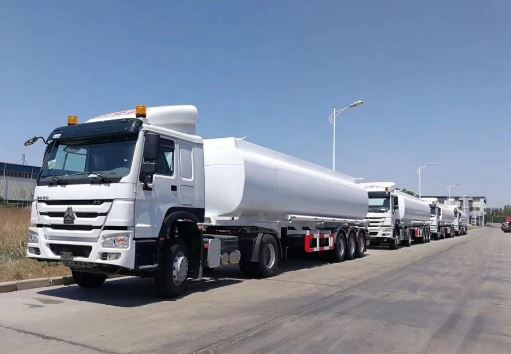Fuel tanker drivers have commended the petroleum downstream regulator, the National Petroleum Authority (NPA), for spearheading discussions on their condition of service.
They said the framework on the condition of service for more than 5000 of them is expected to be ready by the end of June, 2024 and payment to start in July, 2024.
Speaking on behalf of the tanker drivers at a press conference in Accra on Tuesday, the Deputy General Secretary of the General Transport, Petroleum and Chemical Workers Union of Trades Union Congress, Mr. Francis M.K. Sallah, said discussions on the framework convened by the NPA were going smoothly.
The meetings were attended by NPA officials, tanker drivers, tanker owners, oil marketing companies (OMCs) and union leadership.
Mr. Sallah, who was flanked by fuel tanker drivers, particularly commended the UPPF Coordinator of NPA, Mr. Jacob Amuah, for his leadership in chairing the discussions on the condition of service and commitment to seeing to the resolution of the issue.
He, therefore, expressed surprise about the purported call for the removal of Mr. Amuah.
“From us and those who sat in the meeting, the story is strange to us. We don’t know who is pushing the story.
“We don’t have any problem with the Unified Petroleum Pricing Fund (UPPF) Coordinator. We are surprised to see the report. It never came up in our discussions”, he said.
The Ghana National Petroleum Tanker Drivers Union announced an indefinite sit-down strike last week Tuesday, demanding improved conditions of service, especially concerning remuneration.
The fuel tanker drivers issued a communiqué last week Thursday to call off the sit-down strike after a meeting with all stakeholders facilitated by the NPA.
Mr. Sallah said the discussions, spearheaded by the NPA, led to the signing of the Memorandum of Understanding (MoU) which ended the strike action embarked upon by the tanker drivers.
This, he said, paved the way for the discussion on the framework of the condition of service which spells out the responsibilities of tanker owners and tanker drivers and their assistants.
He mentioned remuneration, medicals, safety and insurance as some of the items in the framework









